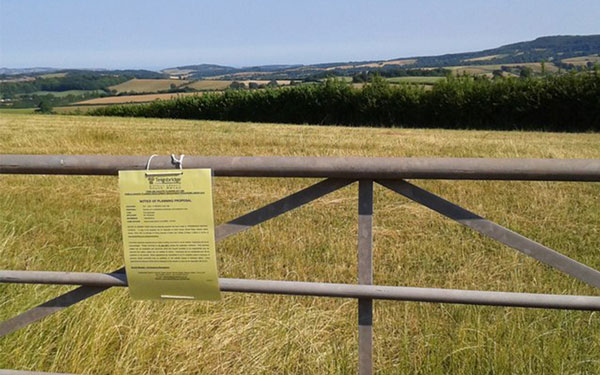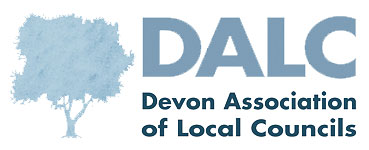Changes to Permitted Development Rights | Have your say!
The government is proposing further changes to permitted development rights, and we would like your views on how we should respond

Permitted Development Rights are rules which allow certain types of works to be carried out without the need for planning permission. They derive from permissions granted by Government, rather than the local authority.
The Government is proposing further changes to permitted development rights, including:
- A new permitted development right to support temporary recreational campsites.
- Changes to the existing permitted development rights for solar equipment and a new permitted development right for solar canopies.
- Amendment to the existing permitted development right which allows local authorities to undertake certain development. This change would allow bodies to undertake the work on behalf of the local authority.
- Changes to the existing permitted development right allowing for the temporary use of buildings or land for film-making purposes.
DALC has held a longstanding view which does not support an across-the-board extension of permitted development rights in the planning system. We believe that decisions about development should be made at the local level, and policies should be the prerogative of local authorities in their Local Plans, or Neighbourhood Planning Groups.
However, we recognise a blanket rejection to proposals would not be supportive of other positions we hold such as initiatives to support the climate emergency and the rural economy.
Therefore, we are asking members for their views in our quick snapshot survey. Your views will help us to determine whether to respond to the consultation, and to what degree we support or oppose the proposals.
Our snapshot survey will close on Wednesday 12 April 2023.
Any council concerned about the proposals can also respond directly to the consultation, which closes on 25 April 2023.
Related Content
- Read DALC’s Planning Policy Statement
- Get involved in DALC’s Committees
Rural roads survey to inform future DALC policy position

DALC is running a Rural Roads survey to gather views of our members’ on the issue of speed on rural roads, specifically single-track lanes.
DALC’s County Committee considers policy matters relating to parish and town councils in Devon and is considering the issue of speed on rural roads. The County Committee has set up a Task and Finish Group to gather more information, and is conducting an online survey to gather the experiences of local councils in Devon. Responses to this survey will inform any future DALC policy position in this area.
The issue of speed on rural roads, especially single-track lanes, is one that often concerns local communities. Vehicles moving at high speeds on narrow roads are not only a potential safety hazard to other road users but can discourage active travel methods such as walking and cycling. For these reasons and others it is not uncommon for parish and town councils to request a lower speed limits for these roads near their communities, or to propose that all rural roads of a certain type (usually single track lanes) should have lower speed limits.
Speed limits are a matter of national policy and Devon County Council operates within the Department for Transport’s regulations. The national policy is clear that on rural roads the national speed limit of 60mph should apply, that it is a maximum not a desirable speed, and that road users should moderate their speed according to local conditions. Local variations to the national speed limit are regarded as confusing to drivers and likely to raise, rather than lower, the risk of collisions. As such, exceptions to the national speed limit on rural roads are only applied to stretches of road with a significant reliable record of speed related accidents. It would require a change of national policy to allow for lower speed limits on rural roads within Devon, and to affect this change will require long and extensive discussion with both national and local bodies.
As such, any decision to adopt a policy position regarding speed limits on rural roads should not be taken lightly, and we would like to gather as many views as possible on this issue from our members before making any further decisions, and would be grateful if you could complete the survey.
The closing date for the survey is Friday 6 May 2022, and if you have any technical problems or questions regarding the survey, please contact us.
Related Links
For more information on our County Committee and the work it does, see our Committees page.
DEFRA consultation on Environmental Permitting Regulations and the effect on cemeteries
DEFRA has launched a consultation into amending the Environmental Permitting (England and Wales) 2016 Regulations which may affect all burial authorities and existing cemeteries or burial grounds.

The government’s stated objective with the consultation is to update the Environmental Permitting Regulations to improve the way in which groundwater activities and some related surface water discharge activities, are regulated.
The proposals include an exemption from the permitting scheme for small cemeteries (those with fewer than 100 burials per year) but to qualify as an ‘exempt facility’ a cemetery will have to comply with the General Binding Rules (GBRs), one of which is that the minimum size of a grave plot will be no smaller than 5 square metres.
DEFRA also proposes to prohibit burials within 10m of a field drain or dry ditch, or within 30m of a spring or watercourse, or within 50m of certain protected nature sites, or within 250m of any well, spring or borehole used for domestic consumption or food production purposes.
NALC is aware of one local council cemetery where a standard burial plot is 4′ x 8′ (32sq feet or 3 square metres). To increase the size of the burial plot to 5 square metres would mean increasing the size of the plot by two thirds.
Additionally, the proposed General Binding Rules appear to preclude the use of ‘bricked’ graves where it is not possible to achieve a minimum depth of soil of at least 1 metre above any part of the coffin (Part 1 of Schedule 2 of the Local Authorities Cemetery Order 1977 contains specific provisions for the use of walled or bricked graves where the minimum depth of soil cannot be achieved).
DEFRA has also made proposals regarding ground-source heat pumps which, if implemented, will restrict the installation of such pumps within certain distances of watercourses, springs and protected nature sites. These restrictions may impede the drive towards ‘green energy’, including community-based solutions.
There are potential implications of amending these regulations for anyone who has or is planning to have a ground-source heat pump and/or a septic take, and for communities with elderly sewage systems which have to carry storm water as well as foul water.
Respondents from the local council sector are strongly advised to read Annex B to the main consultation document which contains the details of draft exemption conditions for small-scale cemetery developments in low-environmental risk settings with possible future effect. See Annex A for a glossary of terms relevant to this consultation.
For more information, read NALC’s policy briefing which contains details of their current policy position and the consultation questions that they will be responding to. Councils can respond to the consultation directly and respond to NALC to help inform their own consultation response.
Respond to NALC by 5pm on Friday 26 November, the DEFRA consultation closes on 22 December 2021.
Local Nature Recovery Strategies – DEFRA consultation
You don’t have permission to view the content
Covid-19: an opportunity for change? Take part in academic research!
The clerk at Broadclyst Parish Council is inviting clerks and councillors across the southwest to take part in academic research for her dissertation.

The academic research study titled “Covid-19: an opportunity for change for Town and Parish Councils?” is being done by Mrs Angie Hurren as partial completion of a BA Honours degree in Community Governance through De Montfort University.
Covid has brought many changes in our lives; the research will investigate what, if any, changes Covid has caused in Town and Parish Councils. The research will comprise completion of a short survey that should take no more than ten minutes to complete. On completion, the survey will ask participants to indicate if they would be willing to participate in a more in-depth interview which, due to Covid restrictions, will likely take place over the telephone or via an online platform, and will take around 15 minutes to complete.
Participation is voluntary; by submitting a response to the survey, you will imply that you have consented to participate. You have the right and ability to withdraw at any time. Please download the Participant Information sheet and Research Participant Consent Form here.
Data protection: all survey data will be anonymised and will not be shared with other students. The educational supervisor will access to the data.
Withdrawal from the survey: Data that has already been collected will be deleted from the research where it is possible to so. A consent form will be provided separately.
Link to survey: Click here to access the survey
Contact points for further information:
Researcher: Angie Hurren, Broadclyst Parish Council, clerk@broadclyst.org 01392 360269
Supervisor: Johnathan Bourne, SLCC, Johnathan.Bourne@slcc.co.uk 01823 253646
Thank you for taking the time to participate – the University says that most researchers only get 10% response rate, so get the kettle on, sit down with a cuppa, let’s show De Montfort that we can do much better than that in the Westcountry!
The survey closes Friday 23rd July 2021.
The ‘Right to Contest’

Has your council ever used the ‘Right to Contest’ for unused land to be brought back to use in your community? If yes, NALC is interesting in hearing you.
MHCLG are looking to refresh the Right to Contest process looking at its effectiveness and usefulness and have engaged with NALC to work with local councils. Essentially the Right to Contest is a right that any member of the public or body has to ‘contest’ any land owned by a public body that is unused or underused which could be brought back into use. The Right to Contest was previously known as the Community Right to Reclaim Land.
The Right to Contest has two strands: strand 1 covers central government bodies on a voluntary, non-statutory basis, and is administered by the Cabinet Office. Strand 2 covers bodies (local authorities and other certain public bodies) set out in Schedule 16 of the 1980 Act, and is administered by MHCLG.
Where a request is made under Strand 2 of the Right to Contest about a particular piece of land, MHCLG will communicate with the relevant landowner to identify its status. The decision on whether to direct that the land be released will be made on the basis of whether the land or property is in use or whether it is likely to be used in a suitable period of time.
MHCLG would be grateful if member councils could please complete this very short snapshot survey which will help inform how MHCLG progresses its refresh of Strand 2 of the Right to Contest. It will take a few short minutes to complete. Even if you nothing about this right – please complete the survey.
The deadline for completion of the survey is 17:00 on Friday 9 October.
Complete NALC's snapshot survey
